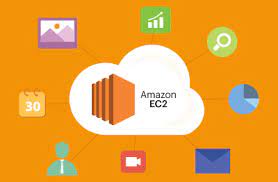
Amazon Elastic Compute Cloud (Amazon EC2) is a web service that provides resizable computing capacity in the cloud. It enables you to launch virtual machines (instances), which are the building blocks of your cloud infrastructure. An EC2 instance is a virtual server in the AWS cloud that can run applications and services.
Each EC2 instance is assigned a unique DNS name and IP address, and you can choose from a variety of instance types, operating systems, and software packages. You can also configure the resources, such as CPU, memory, and storage, for each instance to meet your specific requirements. This flexibility makes EC2 ideal for a wide range of applications, from small websites to enterprise-level applications and big data processing.
Additionally, you can use EC2 to launch instances in multiple availability zones, which are isolated locations within an AWS region, to provide high availability and failover support for your applications. With EC2, you only pay for what you use, and you can easily scale your resources up or down as needed.

Features of Amazon EC2
Amazon EC2 provides the following features:
- Virtual computing environments, known as instances
- Preconfigured templates for your instances, known as Amazon Machine Images (AMIs), that package the bits you need for your server (including the operating system and additional software)
- Various configurations of CPU, memory, storage, and networking capacity for your instances, known as instance types
- Secure login information for your instances using key pairs (AWS stores the public key, and you store the private key in a secure place)
- Storage volumes for temporary data that’s deleted when you stop, hibernate, or terminate your instance, known as instance store volumes
- Persistent storage volumes for your data using Amazon Elastic Block Store (Amazon EBS), known as Amazon EBS volumes
- Multiple physical locations for your resources, such as instances and Amazon EBS volumes, known as Regions and Availability Zones
- A firewall that enables you to specify the protocols, ports, and source IP ranges that can reach your instances using security groups
- Static IPv4 addresses for dynamic cloud computing, known as Elastic IP addresses
- Metadata, known as tags, that you can create and assign to your Amazon EC2 resources
- Virtual networks you can create that are logically isolated from the rest of the AWS Cloud, and that you can optionally connect to your own network, known as virtual private clouds (VPCs)



Leave a Reply